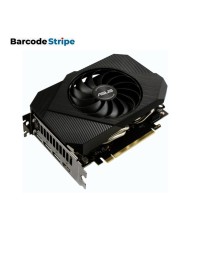
ASUS GeForce RTX 3060 Phoenix Graphics Card
Key Features
· Boostable up to 1807 MHz
· 3584 CUDA Cores
· Ampere Architecture
· 12GB of GDDR6 VRAM
· 15 Gb/s Memory Speed
· 192-Bit Memory Interface
· HDMI 2.1 | DisplayPort 1.4a
· 7680 x 4320 Max Digital Resolution
· PCIe 4.0 x16 Interface
· Single Axial-Tech Fan
Based on the Ampere architecture and designed to handle the graphical demands of 1080p gaming, the ASUS GeForce RTX 3060 Phoenix Graphics Card brings the power of real-time ray tracing and AI to your PC games. The GPU features 12GB of GDDR6 VRAM and a 192-bit memory interface, offering improved performance and power efficiency over the previous Turing-based generation.

Security Policy

Shipping Policy

Return Policy

